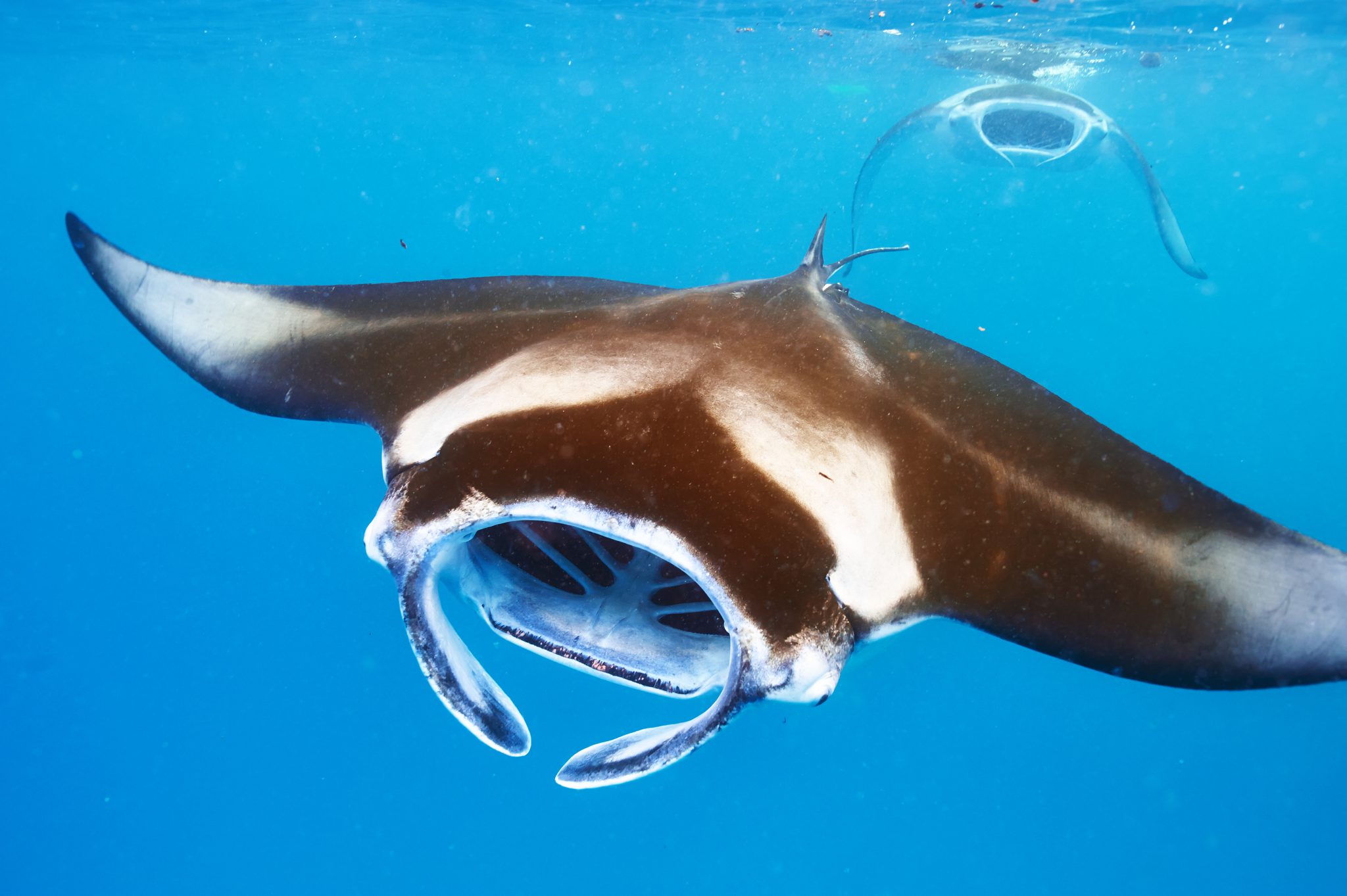
Everything You Need to Know About Diving with Manta Rays
Let's face it, manta rays and stingrays look pretty similar and you can only spot the differences if you know what you're looking for. Both manta rays and stingrays are related to sharks under the cartilaginous fish group chondrichthyes, meaning their structure is built on material similar to that found in our nose and ears.They both have pectoral fins that have developed into wide.

Manta Ray Smile This manta ray at the Columbus Zoo was in … Flickr
The Mystery of the Melanistic Manta Rays. Scientists are trying to work out why some manta rays have black blotches on their skin, which is uncommon in the oceans. Of all sharks and rays, the two.
:max_bytes(150000):strip_icc()/front-view-of-a-giant-manta-ray-911501376-5c02ec48c9e77c00016e84f7.jpg)
Ocean manta ray bidsdop
The giant manta ray is the world's largest ray with a wingspan of up to 26 feet. They are filter feeders and eat large quantities of zooplankton. Giant manta rays are slow-growing, migratory animals with small, highly fragmented populations that are sparsely distributed across the world.

Manta rays are first fish to recognise themselves in a mirror New Scientist
Description The name "manta" means mantle or cloak, which is an accurate description of the animal's form. Manta rays have triangular pectoral fins, broad heads, and gill slits on their ventral surfaces. Their horn-shaped cephalic fins have earned them the nickname "devil ray." Both species of ray have small, square teeth.
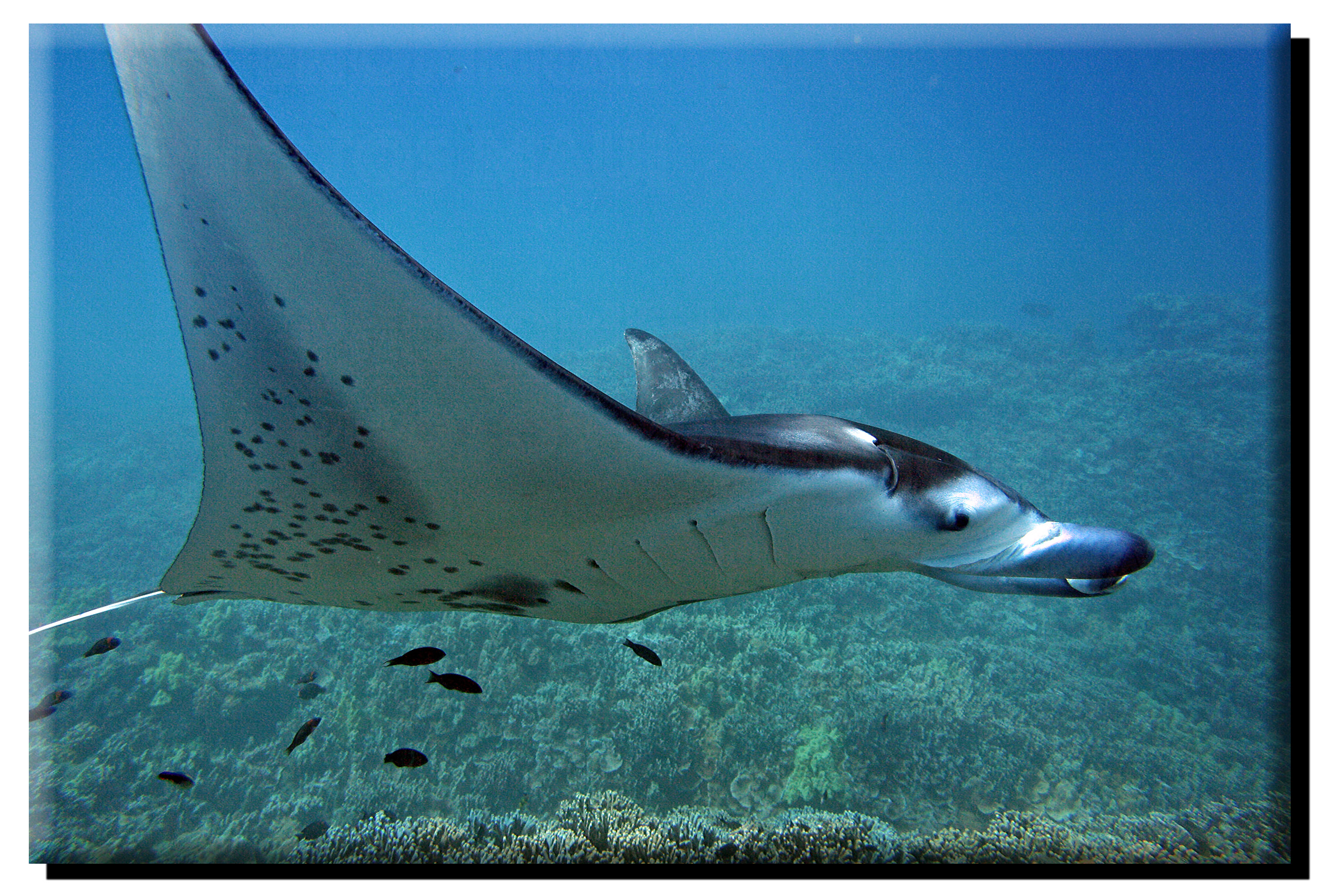
Manta Ray Profile on Metal Phenomenal Photos Maui
Manta rays, also known as "devil rays," or "devilfish," are large members of the eagle ray family. Those nicknames come from the horn-shaped fins on their face, called "cephalic fins." The curved cephalic fins give a devil horn-like appearance to the rays.

UltraRare Manta Ray Nursery on the Coast of South Florida Reefbites
Reef mantas face many threats, from plastic pollution to overfishing. For instance, the mantas' social networks may be crucial for their reproduction or ability to find food, says Perryman.

Manta Ray Face on Metal Phenomenal Photos Maui
Although the biggest threats to manta rays are overseas, young members of the species face a difficult time off the crowded South Florida coast, where they get hit by boats or caught up in fishing.
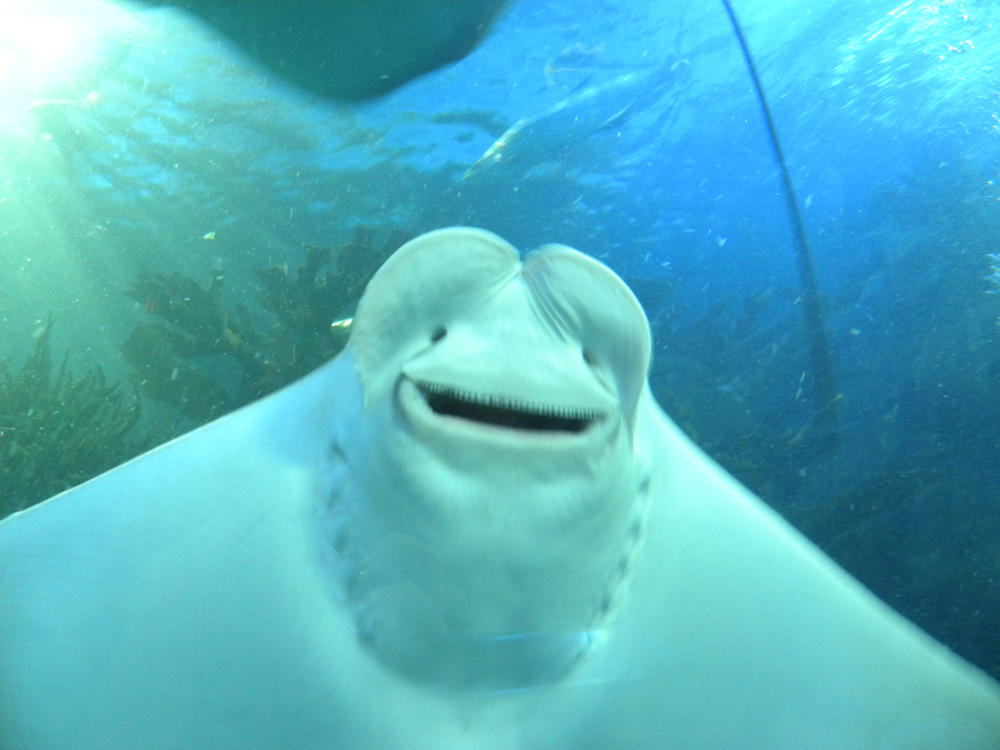
Smiling Mantaray by strangelittleimp on DeviantArt
Weight and Length. Female giant manta rays are larger than males, having a wingspan of 18.3 to 22.7 feet. Males, meanwhile, measure 17.3 to 20.3 feet from wing to wing. Giant manta rays can grow past those averages, though, with the widest one known to researchers measuring 30.3 feet. They can weigh anywhere from 2643 to 3084 pounds.
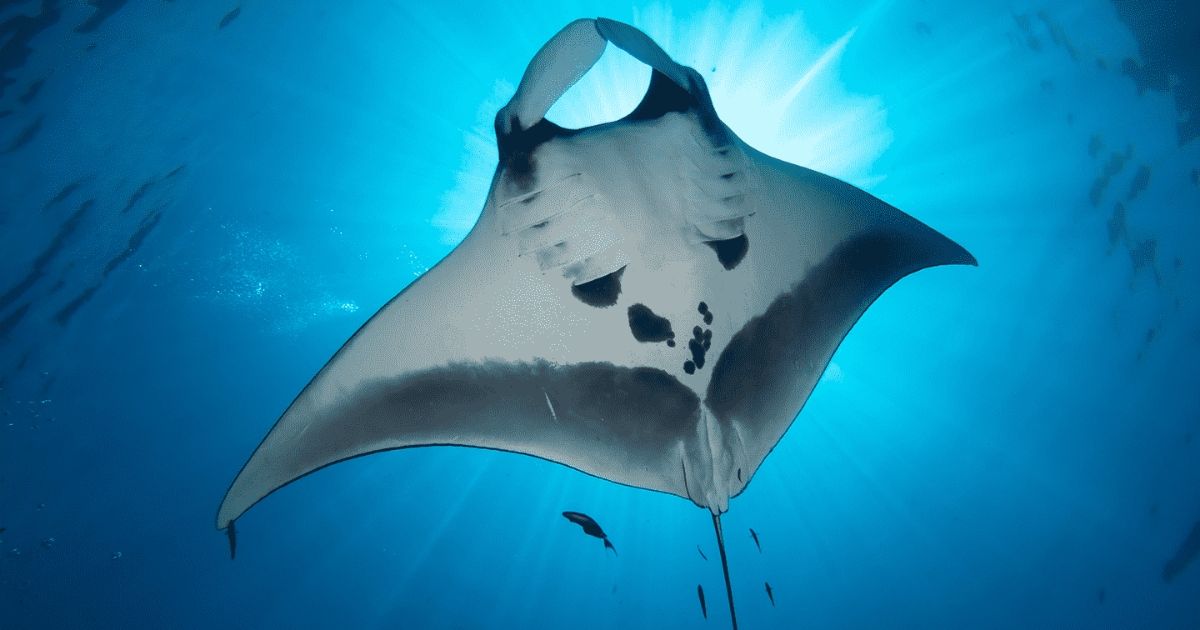
Hawaiian Wildlife The Manta Rays in Hawaii Sea Paradise
Browse 3,225 authentic manta ray stock photos, high-res images, and pictures, or explore additional giant manta ray or manta ray maldives stock images to find the right photo at the right size and resolution for your project. giant manta ray. manta ray maldives. hawaii manta ray. manta ray aerial.

Eye to Eye with a Manta Ray The Ark In Space
Manta rays—highly intelligent and highly threatened—are the largest rays in the world. The sea creatures live in tropical, subtropical, and temperate ocean waters across the globe. "Manta".
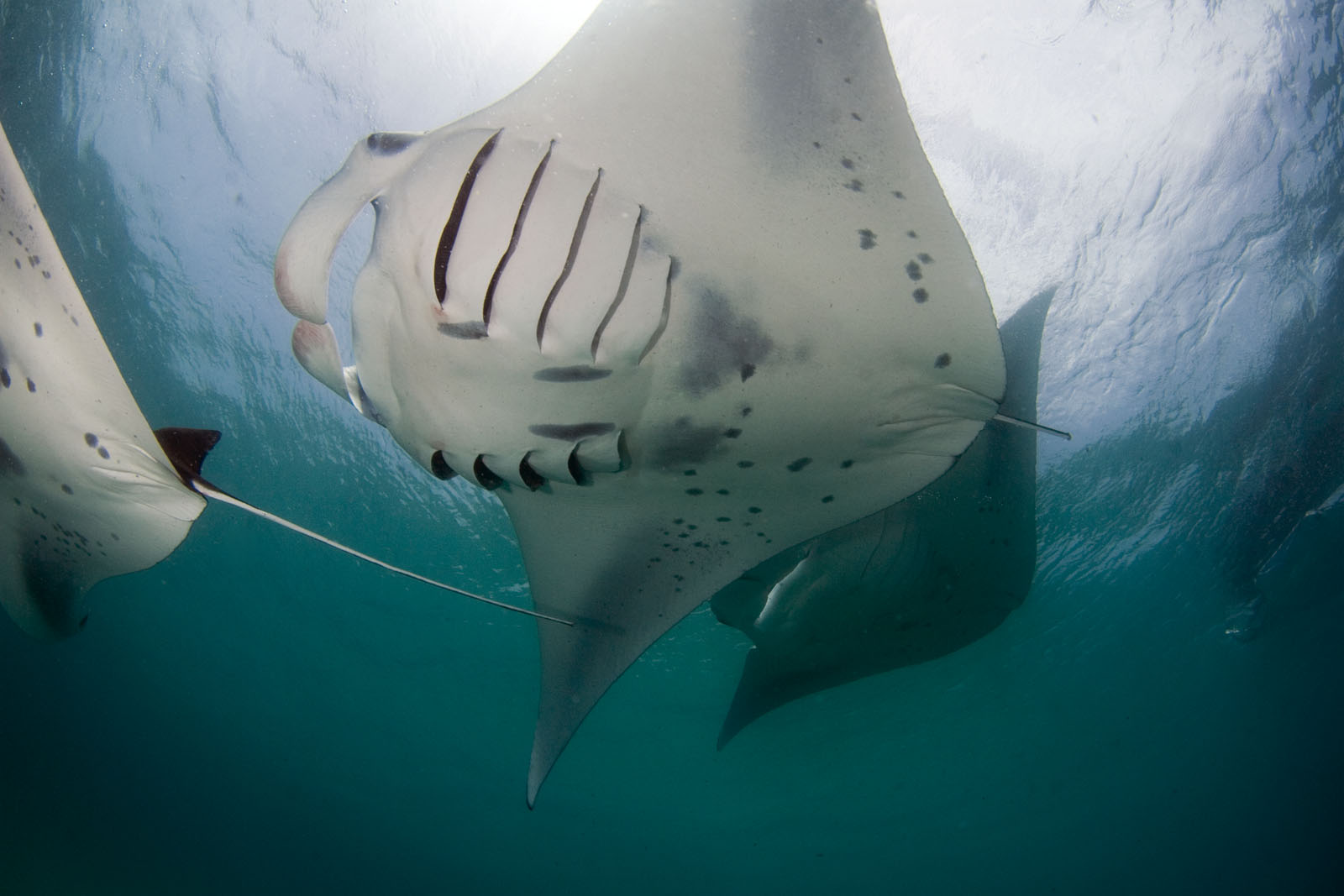
Animals of the world Manta Ray
Manta rays have large, triangular-shaped pectoral fins on either side of their body which looks like wings when they swim. They have a flattened, diamond-shaped, disk-like body. Reef manta rays are primarily gray and black on the top (dorsal side), and mostly white on the bottom (ventral side), with batches of black pigmentation.
Three Beautiful Manta Rays r/stingrays
Appearance Manta Rays have broad, flattened, diamond-shaped bodies and triangle pectoral fins on each side of their bodies, which, as they move, look similar to wings. Its head has two cephalic lobes that protrude from the front, earning it the nickname "demon fish." Manta Rays come in two colors kinds. Close-up of a male Manta Ray

Manta ray smile National geographic, Manta ray, Joni
Reef mantas measure a bit smaller, growing about 14 feet across (about 5 meters). The Anatomy of a Manta Ray: Body Parts Viewing from the topside of a manta ray, you'll find pectoral fins, cephalic horns, eyes, and a tail. Even though manta rays have tails, they can actually exist without one.

Manta Ray National Geographic
The giant manta ray is the largest ray and one of the largest fishes in the world. Reaching widths of up to 29 feet (8.8 m), the manta rays are much larger than any other ray species. For many decades, there was only one known species of manta, but scientists recently divided that species into two: the giant manta ray, which is a more oceanic.
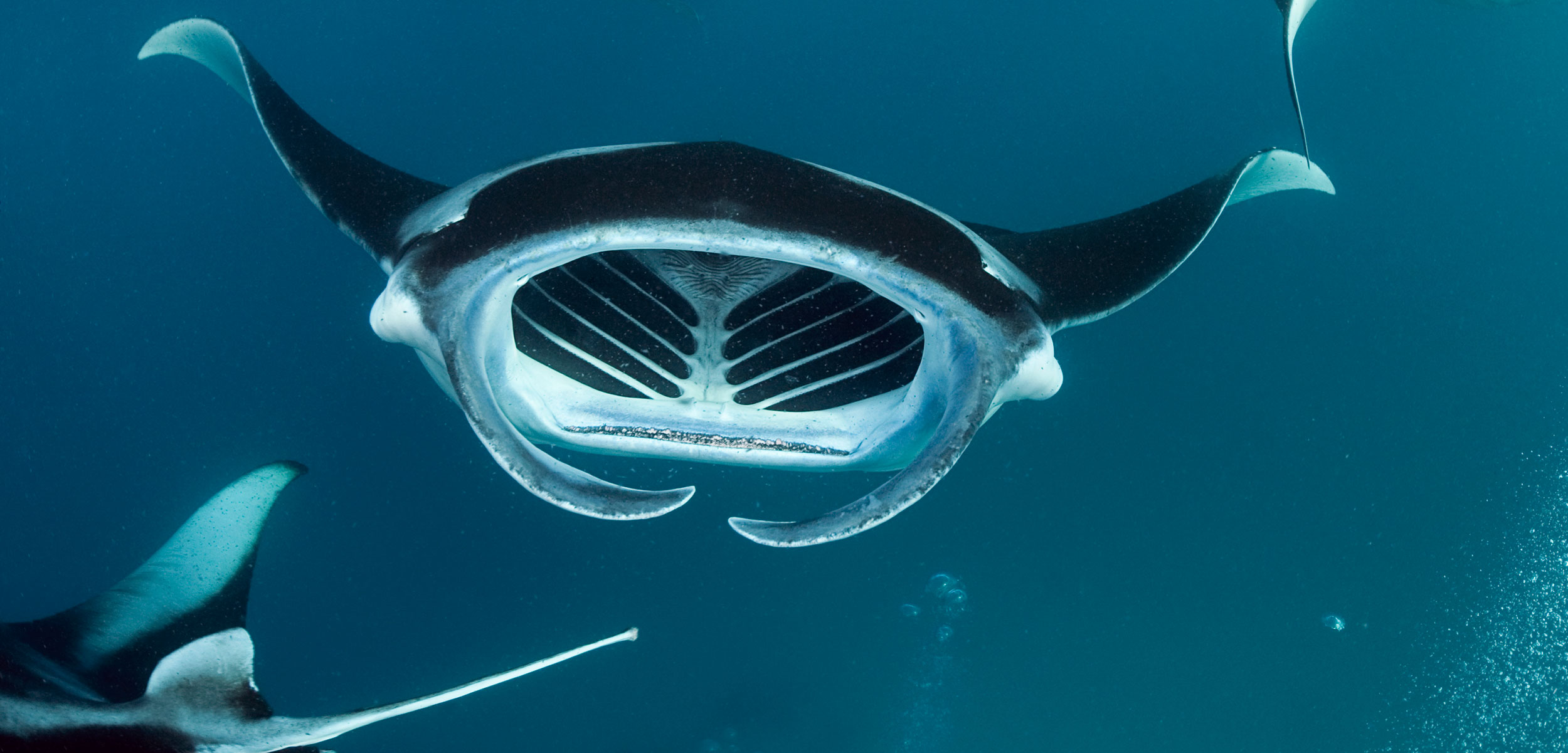
An Elusive Species of Manta Ray Draws Closer to the Light Hakai Magazine
Flattened and wider than they are long, manta rays have fleshy enlarged pectoral fins that look like wings; extensions of those fins, looking like a devil's horns, project as the cephalic fins from the front of the head. Manta rays have short whiplike tails provided, in some species, with one or more stinging spines.

Manta Ray face Melbourne Aquarium Jessie Ward Flickr
The oceanic manta ray, or Mobula birostris, is the largest ray species in the world. According to NOAA, this gentle giant has a wingspan reaching up to 26 ft and weighing over 5,300 pounds! Oceanic mantas are known to live over 45 years, based off of photo-identification records.